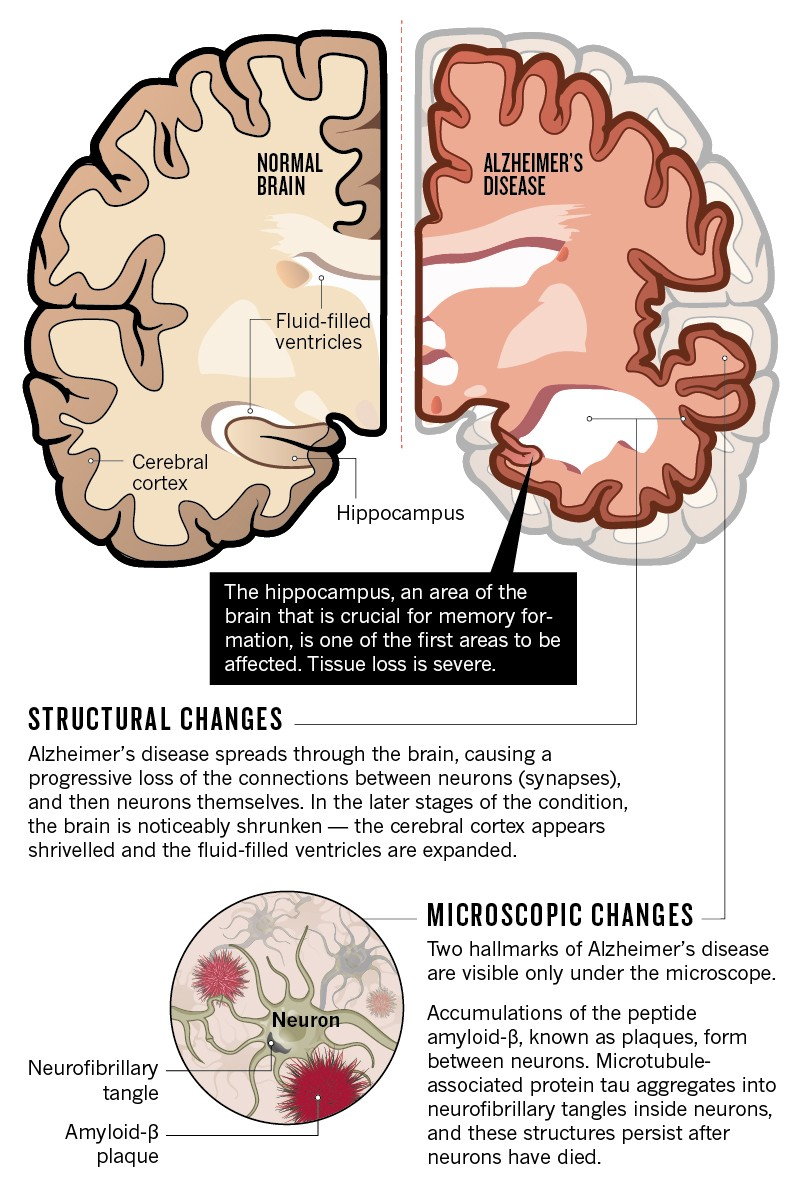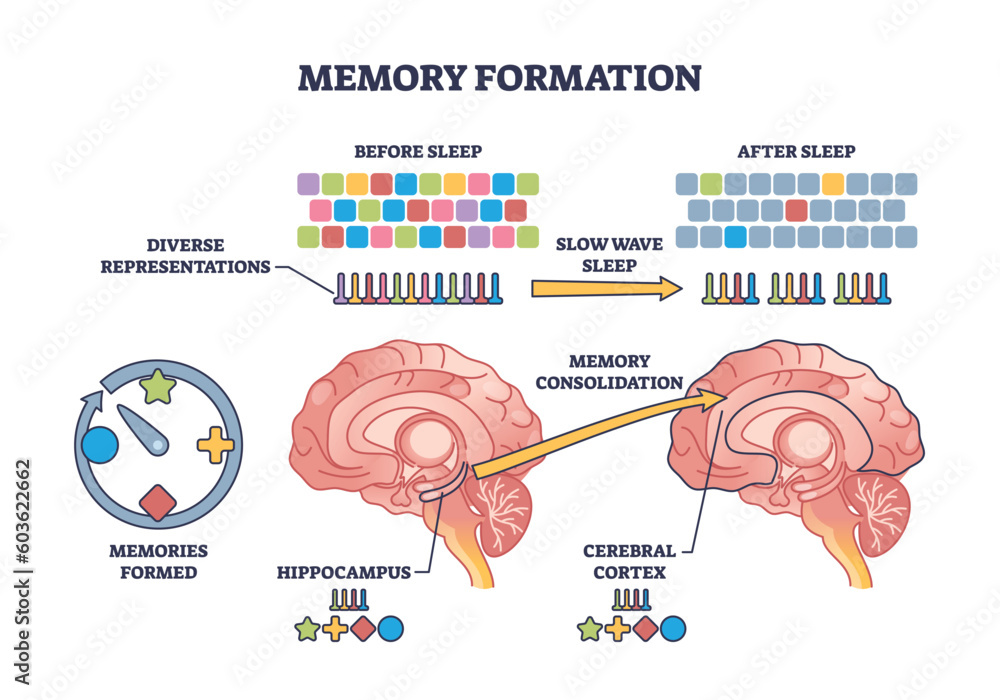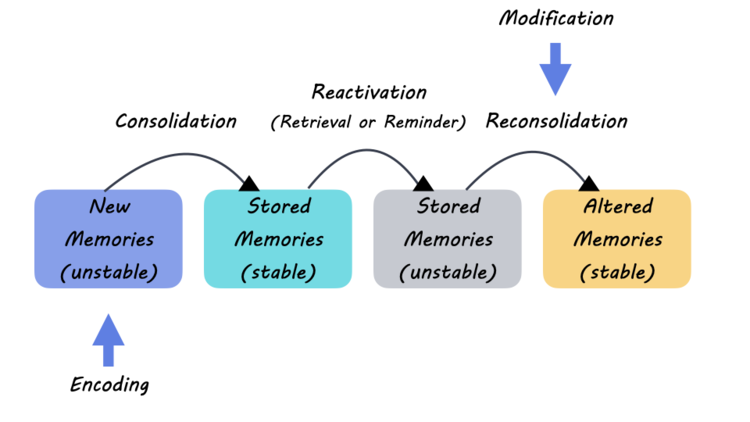Age-related brain diseases such as stroke, dementia, and late-life depression represent some of the most pressing health challenges faced by older adults today. Recent research has identified 17 modifiable risk factors, highlighting the potential for dementia prevention through lifestyle changes and improved brain health. This groundbreaking study from Mass General Brigham underscores how addressing aspects like blood pressure, diet, and social engagement can significantly lower the risk of these debilitating conditions. Modifying even one risk factor not only enhances individual well-being but also offers a strategic approach to managing stroke risk and other age-related issues. As we strive for healthier aging, understanding these interconnected risk factors becomes essential for fostering a resilient brain and improving overall quality of life.
The term “cognitive decline in older adults” encompasses a wide array of conditions that affect mental clarity and emotional stability, including issues like stroke, dementia, and late-life depression. As researchers delve deeper into understanding the complex interplay of these neurological challenges, they focus on shared lifestyle and health-related factors that contribute to these conditions. By identifying modifiable elements within our daily routines, we can pave the way for effective prevention strategies aimed at enhancing cognitive longevity. This exploration of cognitive health not only serves to reduce the incidence of these disorders but also to promote a more engaged and fulfilling life as we age. The study’s findings resonate with the growing recognition that proactive measures can significantly uplift brain health and mitigate risks associated with aging.
Understanding Age-Related Brain Diseases
Age-related brain diseases, including dementia, stroke, and late-life depression, present significant challenges to public health as the global population ages. These conditions are interlinked, often sharing a common set of risk factors that can be modified through lifestyle changes. According to recent research from Mass General Brigham, recognizing the shared etiology of these diseases is critical in shaping effective preventative strategies.
The impact of age-related brain diseases extends beyond individual health, affecting families and healthcare systems alike. Identifying and addressing the modifiable risk factors early can lead to better patient outcomes, reducing the burden on caregivers and the healthcare system. Notably, timely intervention can improve brain health and potentially stave off the onset of these debilitating diseases.
The Importance of Modifiable Risk Factors
Modifiable risk factors are those lifestyle choices and health conditions that can be changed to improve overall brain health. The Mass General Brigham study identifies seventeen risk factors, including high blood pressure, diabetes, and alcohol use, that are common across dementia, stroke, and late-life depression. Recognizing these factors is essential; for instance, managing blood pressure can not only reduce the risk of stroke but also lower the chances of developing dementia.
Implementing changes based on these identified risk factors can thus play a pivotal role in dementia prevention strategies. For example, adopting a healthier diet and increasing physical activity are two key lifestyle adjustments that can significantly mitigate risks. Holistic monitoring and management of these factors can empower individuals to take control of their brain health as they age.
Physical Activity and Brain Health Improvement
The role of physical activity in reducing the risk of age-related brain diseases cannot be overstated. Regular exercise has been linked with numerous health benefits, including improved cardiovascular health and enhanced cognitive function. Studies have suggested that individuals who consistently engage in physical activity are at a lower risk for developing conditions such as stroke and dementia.
Furthermore, physical activity not only helps in maintaining a healthy body but also nurtures mental wellness, potentially alleviating symptoms of late-life depression. Engaging in physical activities that involve cognitive challenges, like dance or tai chi, can create a dual benefit by enhancing both physical fitness and mental acuity.
Diet and Its Impact on Brain Health
Diet plays a critical role in determining not just physical health but also brain health. A balanced diet rich in fruits, vegetables, whole grains, and healthy fats has been associated with a lower risk of age-related brain diseases. Researchers have found that diets like the Mediterranean diet, which prioritize nutrient-dense foods, can contribute to cognitive longevity and overall mental wellness.
Conversely, diets high in saturated fats and sugars have been linked to increased inflammation and oxidative stress, both of which are detrimental to brain health. Ensuring a diet that supports cardiovascular health can consequently lower the risk of stroke, dementia, and depression, emphasizing the crucial link between nutrition and cognitive function.
Social Engagement as a Protective Factor
Social engagement is a significant modifiable risk factor in the context of age-related brain diseases. Individuals who maintain strong social connections and actively participate in community activities tend to experience better mental health outcomes. Engaging socially can help mitigate feelings of isolation and depression, thus supporting overall cognitive health.
Participating in group activities, volunteer work, or simply maintaining regular connections with family and friends can improve quality of life. The protective effect of social engagement can complement other health strategies, embedding a sense of purpose and belonging that is vital for emotional and cognitive well-being.
The Role of Sleep in Cognitive Function
Sleep quality is intricately linked to brain health, with poor sleep shown to exacerbate risk for conditions such as dementia and depression. Researchers in the field highlight that restful sleep is essential for cognitive restoration, memory consolidation, and emotional regulation. Disrupted sleep patterns can lead to an increased risk of developing age-related brain diseases.
Improving sleep hygiene—establishing consistent sleep schedules and creating a restful sleeping environment—is fundamental for enhancing cognitive function. By addressing sleep issues, individuals may not only improve their mood and energy levels but also decrease their vulnerability to depression and dementia.
Chronic Stress and Its Consequences
Chronic stress is recognized as a significant contributor to mental health decline, impacting brain function profoundly. Elevated stress levels can lead to neuroinflammation, affecting areas of the brain responsible for memory and emotional regulation. This can increase the risks of depression and cognitive decline, making stress management a vital component of any preventative strategy against age-related brain diseases.
Effective stress management techniques such as mindfulness, meditation, and regular physical activity can significantly improve mental health outcomes. By learning to handle stress better, individuals can protect themselves from the cascading negative effects on brain health.
Impact of Smoking on Brain Health
Smoking is a well-documented risk factor for numerous diseases, including cognitive decline and depression. The toxic substances in cigarettes can lead to vascular damage and decrease blood flow to the brain, which increases the risk of stroke and cognitive impairment. Smoking cessation is one of the most impactful health improvements individuals can make to bolster their brain health.
Support systems and resources for quitting smoking not only assist in improved physical health but also enhance cognitive function and reduce the risk of mood disorders. Quitting smoking can have immediate and long-term benefits, making it a crucial focus for individuals concerned with maintaining brain health as they age.
The Interconnectedness of Depression and Cognitive Decline
Depression is often seen as a precursor to cognitive decline, particularly in older adults. Untreated depression can contribute to increased cognitive impairment and the onset of dementia. Understanding the interconnectedness of these conditions highlights the need for early detection and treatment of depression, particularly in aging populations.
Integrating mental health care with neurological care can provide a more comprehensive approach to treating and preventing age-related brain diseases. Addressing depression through therapy, medication, or lifestyle changes can help create a protective buffer against cognitive decline, ultimately improving the quality of life for seniors.
Future Directions in Brain Health Research
Research in the field of brain health is evolving, particularly regarding the identification and modification of risk factors associated with age-related diseases. The development of tools like the Brain Care Score serves to empower individuals to take proactive steps towards better cognitive health. Continued studies on modifiable risk factors and their impacts are crucial for informing future preventive strategies.
As we advance our understanding of the complex relationships between lifestyle factors and brain diseases, the hope is to translate this knowledge into effective public health initiatives. By focusing on prevention and education, researchers can contribute to decreasing the incidence of dementia, stroke, and late-life depression, paving the way for healthier aging.
Frequently Asked Questions
What are the modifiable risk factors associated with age-related brain diseases?
Modifiable risk factors for age-related brain diseases, including stroke, dementia, and late-life depression, include high blood pressure, kidney disease, diabetes, poor diet, and physical inactivity. By addressing these factors through lifestyle changes, individuals can significantly reduce their risk of developing these conditions.
How can dementia prevention be achieved through lifestyle changes?
Dementia prevention can be achieved by managing modifiable risk factors such as maintaining a balanced diet, regular physical activity, controlling blood pressure, and engaging in social activities. These lifestyle choices not only enhance brain health but also contribute to overall well-being.
What role does high blood pressure play in age-related brain diseases?
High blood pressure is a major risk factor for age-related brain diseases, including stroke and dementia. Maintaining healthy blood pressure through diet, exercise, and regular check-ups can significantly lower the risk of these conditions, thereby improving brain health.
Can improving brain health reduce the risk of stroke?
Yes, improving brain health through lifestyle modifications like increased physical activity, a nutritious diet, and managing stress can reduce the risk of stroke. These interventions target several modifiable risk factors that are linked to stroke and other age-related brain diseases.
What is the connection between late-life depression and age-related brain diseases?
Late-life depression is closely linked to age-related brain diseases such as dementia and stroke. Factors like chronic pain, poor physical health, and social isolation can contribute to depression, increasing the likelihood of developing other brain-related conditions. Addressing these risk factors is essential for prevention.
How does social engagement affect the risk of dementia?
Social engagement plays a crucial role in reducing the risk of dementia. Engaging with others can lead to improved emotional well-being and cognitive function, helping to stave off dementia. Activities such as volunteering, participating in community events, or maintaining friendships can enhance brain health.
What dietary changes can aid in dementia prevention?
A balanced diet rich in fruits, vegetables, whole grains, and healthy fats can aid in dementia prevention. Reducing the intake of saturated fats, sugar, and processed foods can lower risk factors such as high cholesterol and poor cardiovascular health, contributing to better brain health.
What impact does physical activity have on brain health?
Regular physical activity significantly enhances brain health by improving blood flow to the brain, reducing blood pressure, and decreasing the risk of dementia and stroke. Activities like walking, swimming, or engaging in leisure sports can promote cognitive function and overall mental well-being.
How significant is the relationship between obesity and age-related brain diseases?
Obesity is a recognized risk factor for age-related brain diseases such as dementia, stroke, and depression. Maintaining a healthy weight through diet and exercise can mitigate these risks, supporting better brain function and overall health.
What is the Brain Care Score and how does it relate to brain health?
The Brain Care Score is a tool developed to help individuals understand and improve their brain health. It incorporates the latest research on modifiable risk factors for age-related brain diseases, guiding users towards effective lifestyle changes to reduce their risk of conditions like stroke, dementia, and late-life depression.
| Risk Factor | Description |
|---|---|
| Diabetes | Risk factor for stroke, dementia, and depression. |
| Blood Pressure | High blood pressure is a major risk factor for all three conditions. |
| Kidney Disease | Increases the risk of stroke, dementia, and depression. |
| Fasting Plasma Glucose | High levels indicate increased risk for all three conditions. |
| Total Cholesterol | High cholesterol levels are linked to stroke and dementia. |
| Alcohol Use | Excessive consumption raises risks for all three conditions. |
| Diet | Poor diet contributes to the development of stroke, dementia, and depression. |
| Hearing Loss | A modifiable risk factor specifically for dementia. |
| Pain | Chronic pain increases the risk of depression and other conditions. |
| Physical Activity | Lack of activity is linked to a higher risk for all conditions. |
| Purpose in Life | Lacking purpose may lead to depression and other issues. |
| Sleep | Poor sleep quality can increase risk for depression and other conditions. |
| Smoking | A major risk factor for stroke, dementia, and depression. |
| Social Engagement | Low engagement contributes to depression and other conditions. |
| Stress | Chronic stress increases the risk of depression and other conditions. |
| Depression | Untreated depression raises risks for other conditions. |
| Obesity | A risk factor for stroke, dementia, and depression. |
Summary
Age-related brain diseases, including stroke, dementia, and late-life depression, are significantly influenced by modifiable risk factors. Recent research highlights 17 shared factors, such as high blood pressure, diabetes, and obesity, that can be altered to reduce the risk of these interconnected conditions. By focusing on prevention strategies and lifestyle changes that target these risk factors, individuals can hopefully mitigate the onset of age-related brain diseases and improve overall brain health.







